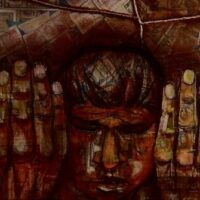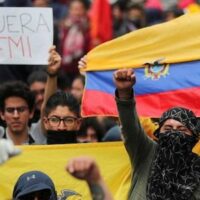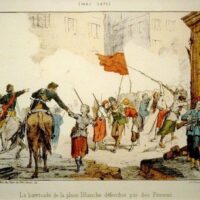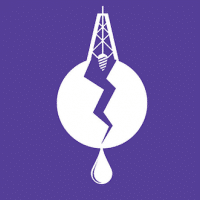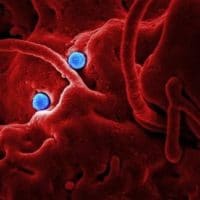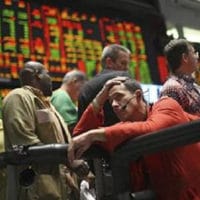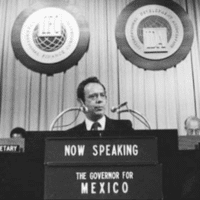-
Globalization from Christopher Columbus, Vasco da Gama and Ferdinand Magellan until today
In North America, the European colonization started during the 17th century, mainly led by England and France, before undergoing a rapid expansion during the 18thcentury, an era also marked by massive importation of African slaves
-
The dual explanation of the crisis, the fake social turnaround by governments, the need for radical responses
The answer is plain to see: the two explanations are not contradictory. A combination of the two enables us to understand what has been happening right before our eyes.
-
North Africa and the Middle-East: A new wave of debt. Part 6
We deepen our analysis by focusing on various regions. After Latin America and the Caribbean and Sub-Saharan Africa, we continue with the Middle-East and North Africa (MENA).
-
An unsustainable burden of debt afflicts the peoples of Sub-Saharan Africa. Part 5
In Sub-Saharan Africa, where health spending and human development levels are in a dramatic state, there is a stronger case than ever for unilateral suspensions of debt payments based on arguments recognized in international law; such as state of necessity and fundamental change of circumstances.
-
Latin America and the Caribbean are facing a serious debt crisis Part 4
The series continues with analyses of how indebtedness developed in other regions of the Global South.
-
Developing countries in the stranglehold of debt. Part 3
The coronavirus pandemic and other aspects of the multidimensional crisis of global capitalism are enough to fully justify suspending debt repayment. Indeed priority must be given to protecting people against ecological, economic and public health disasters.
-
Resistance against the policies imposed by the World Bank, the IMF and other creditors between 2007 and 2011
Ecuador provides an example of a government which officially decided to investigate the process of indebtedness so as to identify illegitimate debt and suspend its repayment.
-
From Rafael Correa to Guillermo Lasso via Lenin Moreno
On 11 April 2021, Guillermo Lasso (52,4%), the right-wing candidate, defeated Andres Arauz, the candidate supported by Rafael Correa and part of the Left, by 52.4% vs 47.6% in the second round of ballots for the presidential election.
-
Ecuador’s poisoned loans from the World Bank and the IMF
Ecuador provides an example of a government which officially decided to investigate the process of indebtedness so as to identify illegitimate debt and suspend its repayment.
-
The Paris Commune of 1871, banks and debt
150 years ago, on 18 March 1871, the Paris Commune was born.
-
Thomas Piketty and Karl Marx: Two totally different visions of Capital
In his book Capital in the Twenty-First Century, Thomas Piketty has gathered his data meticulously and provided a useful analysis of the unequal distribution of wealth and income, yet some of his definitions are somewhat confusing and even questionable.
-
In memory of Patrice Lumumba, assassinated on January 17, 1961
On 17 January 2021, we commemorate the 60th anniversary of the assassination of Patrice Lumumba (1925-1961).
-
Climate and environmental crisis: Sorcerer’s apprentices at the World Bank and the IMF
In December 2020, on the occasion of the fifth anniversary of the signature of the Paris Agreement on Climate, the UN General Secretary sounded the alarm because the situation has fundamentally worsened. In this article we analyze what the World Bank and the IMF have done in connection with the environmental crisis and climate change.
-
From Paul Wolfowitz (2005-2007) to David Malpass (2019-…): the U.S. President’s men control the World Bank
In 2020, the World Bank (WB) and the IMF are 76 years old. These two international financial institutions (IFI), founded in 1944, are dominated by the USA and a few major allied powers who work to generalize policies that run counter the interests of the world’s populations.
-
Reply to the letter by Philippe, King of the Belgians, about Belgium’s responsibility in the exploitation of the Congolese people
On 30 June 2020, on the occasion of the 60th anniversary of the former Belgian Congo’s independence, the news went viral over the planet: Philippe, King of the Belgians, had conveyed regrets for the colonial past, and particularly for the time when Leopold II owned the Congo as a personal possession (1885-1908), to the Congolese head of state and to the Congolese people.
-
The capitalist pandemic, Coronavirus and the economic crisis
The coronavirus pandemic is a serious public health problem and the human suffering caused by the spread of this virus will be enormous. If it massively affects countries of the Global South with very fragile public health systems that have been undermined by 40 years of neo-liberal policies, the death toll will be very high. We must not forget the critical situation of the Iranian population, victim of the blockade imposed by Washington, a blockade that includes medicines and medical equipment.
-
No, the coronavirus is not responsible for the fall of stock prices
We are witnessing a big crisis in the stock markets of the Wall Street, Europe, Japan and Shanghai, and many blame the coronavirus for it. In the last week of February 2020, the worst week since October 2008, the Dow Jones fell 12.4%, the S&P 500 fell 11.5% and the Nasdaq Composite fell 10.5%.
-
Rosa Luxemburg and debt as an imperialist instrument
In her book titled The Accumulation of Capital, published in 1913, Rosa Luxemburg devoted an entire chapter to international loans in order to show how the great capitalist powers of the time used the credits granted by their bankers to the countries of the periphery to exercise economic, military and political domination on the latter.
-
Another look at the Federal Reserve’s panic in September 2019 and solutions to the crisis
You may recall that from 17 September 2019, the United States Federal Reserve injected massive amounts of liquidity into banks due to a quite abnormal situation on the repo market.(1) The repo market designates a mechanism used by banks to obtain short-term financing. They sell securities they hold in repurchase agreements (repo).
-
The Mexican debt crisis and the World Bank
In 2019, the World Bank (WB) and the IMF will be 75 years old. These two international financial institutions (IFI), founded in 1944, are dominated by the USA and a few allied major powers who work to generalize policies that run counter the interests of the world’s populations.







